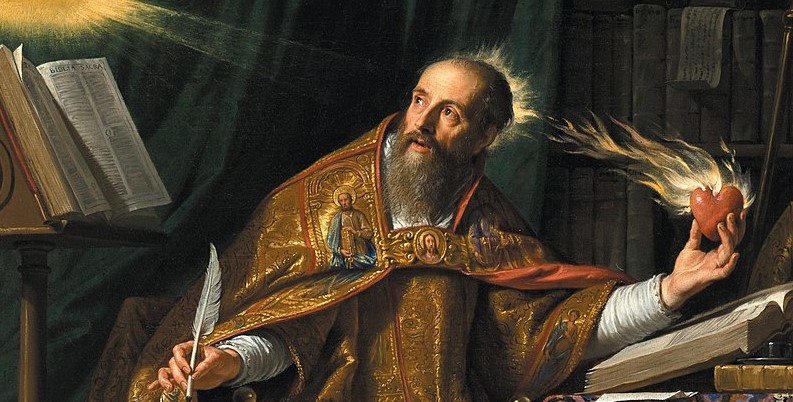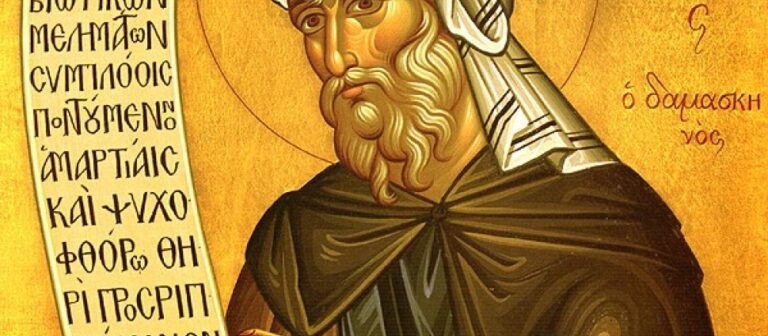
The One Who Loves
Think of the story of the man born blind (John 9). It’s well known and well thought of. It’s one of those stories that take work to read because we must disabuse ourselves of contemporary concern for those with disabilities. For example, there were no Seeing Eye dogs, Braille books or reading machines. This man was a beggar whose hope of social advance, marriage, or even a job was a pipe dream. He was an unnoticed beggar. He was alone.
For example, notice the man’s neighbors after he is healed. The man is obviously making a stir and those who have lived closest to him say, “Isn’t this the man who sat and begged?” And some said yes but many of those same neighbors said, “No, he just looks like him.” And all the while the man who was blind said, “I am the man.” That’s amazing. How unnoticed he must have felt for all those years. Not only was he blind but they had been blind to him.
So, they brought the man to the Pharisees, and things got worse. But before saying more about the blind man and the Pharisees we must understand that the text. Like all of John’s Gospel, this text reaches back to his Prologue (John 1:1-18). For example, in those early verses John writes that the law came through Moses, but grace and truth came through Christ. Now, the Mosaic Law is not contrary to the gospel. In fact, the Mosaic Covenant is an exfoliation of the Covenant of Grace. However, John 9 helps us to understand the division when the Pharisees say to the now healed blind man, “You are his [Jesus] disciple, but we are disciples of Moses. We know that God has spoken to Moses, but as for this man, we do not know where he comes from.” Moses is being set over against Jesus.
So, the man was brought to the Pharisees, and they too asked how he received his sight. But when they found out that Jesus had healed him and did it on the Sabbath, they could not hide their disdain for Jesus. In fact, they called the man a liar. They refused to believe that he had been born blind until his parents were called. And when his parents were called, fearing excommunication, they said, “We know that this is our son and that he was born blind.” But beyond that they refused to talk. They said, “Ask him; he is of age.” And after talking further, the Pharisees excommunicated the man.
Now, here is the beauty of the story. When “Jesus heard that they had cast him out” he searched for him and found him (John 9:35). Jesus, the One for whom, to whom and through whom all things were made had taken dust and spittle and fixed what sin had ruined in this man. Now, the Lord sought the man with whom the church underage should have rejoiced. And when Jesus found him, he asked him, “Do you believe in the Son of Man?” To put it the way that got him excommunicated, “Do you confess Jesus to be the Christ?” (John 9:22). He did. And it wasn’t simply lip service. He knew what the Psalmist meant when he said, “For my father and my mother have forsaken me, but the Lord will take me in” (Psalm 27:10).
I wonder how many of my readers know about this experience. You have been cast off by so many. You have felt alone and gone unnoticed. Sometimes Valentine’s Day only exacerbates these negative feelings. Dear friend, there is one who loves better than a father or mother and is closer than a brother. He is the best of Husbands. He is faithful and true. He is Christ the Lord and He loves us with an unfailing love.
Jeffrey A Stivason (Ph.D. Westminster Theological Seminary) is pastor of Grace Reformed Presbyterian Church in Gibsonia, PA. He is also Professor of New Testament Studies at the Reformed Presbyterian Theological Seminary in Pittsburgh, PA. Jeff is the Editorial Director of Ref21 and Place for Truth both online magazines of the Alliance of Confessing Evangelicals.
A Variation of this post appeared in 2019.
























